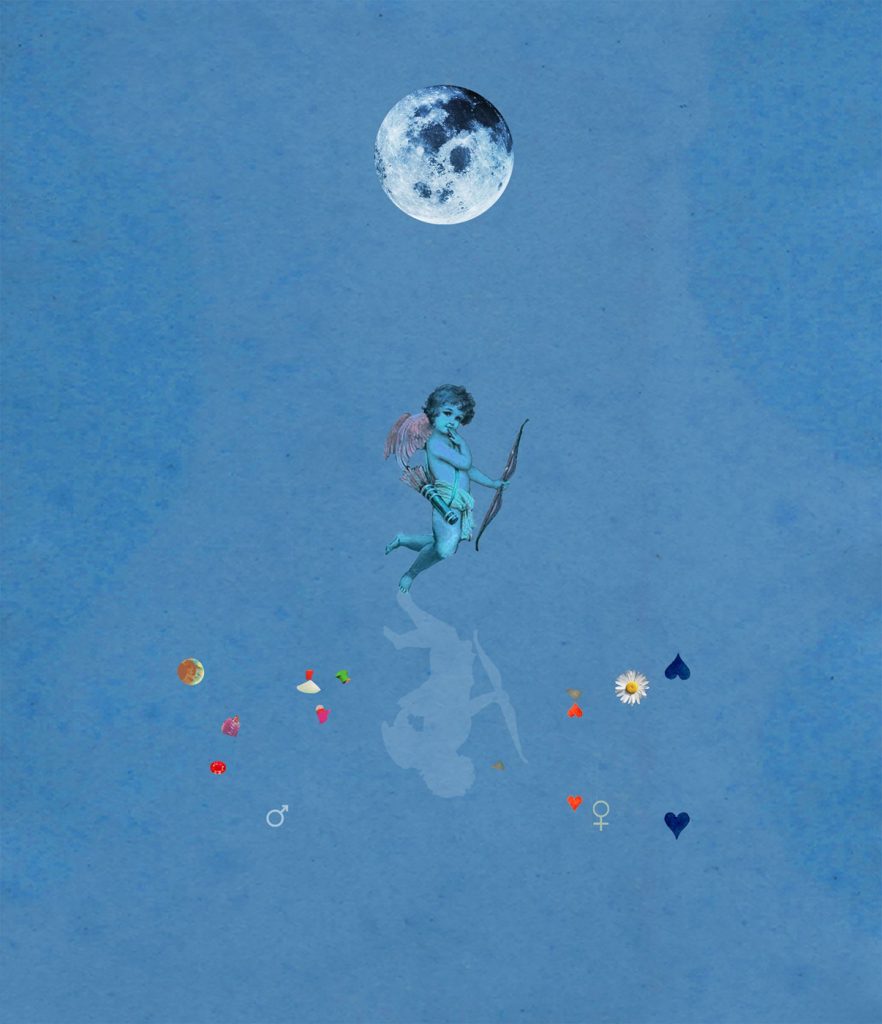a childless couple
testing the fertility
of the hazy moon
–Marcia Burton
The Japanese haiku critic Kenkichi Yamamoto (1907–1988) believed that the best haiku strike a balance between humor and existential isolation. “Loneliness in life and the comical elements of life are two sides of the same coin,” he wrote. As a genre of literature, haiku thrives on the flip of that coin—the small element of uncertainty that challenges our ordinary understanding of the world.
In Tricycle’s Spring 2024 best-of-season haiku, the image of a couple “testing the fertility” of a hazy spring moon is inherently comical. But the poem quickly pivots in the opposite direction. Conventional fertility treatments have failed; otherwise, the poet would not have described them as “childless.” The real significance of the poem lies not in the thought that their lovemaking might result in a child but in the likelihood that it will not.
The global fertility rate for humans has fallen by more than half since 1950. The reasons for this decrease are complex, deriving from positive advances in gender equality, women’s education, and reproductive rights—and from negative causes like environmental pollutants. But there are larger forces at work.
Anxious about the state of the world, many couples now defer having children until they are older, making it harder to conceive when they feel ready—if, indeed, they ever do. In 2021, Morgan Stanley told its investors that the “movement to not have children owing to fears over climate change is growing and impacting fertility rates quicker than any preceding trend in the field of fertility decline.”
Is there something darkly comical in this? Yamamoto would say there is. We may believe that human activity is driven by the quest for profit or progress, but, over the long run, it is eros that makes the world go round. Even Morgan Stanley can understand that much.
I am reminded of the Buddhist parable about a man being pursued by two tigers. One tiger chases him over the edge of a precipice, where he hangs precariously by a vine. The other waits below. As the man dangles from the cliff, two mice—one white, one black—begin to gnaw at the vine. With only seconds of life remaining, the man notices a strawberry hanging at eye level. And so, with his free hand, he plucks it . . . and pops it into his mouth.
The story is didactic, as such parables inevitably are, but the poem approaches its subject from a slant. There are no tigers, no mice—only this one couple, holding each other desperately as they dangle from the cliff edge of a species in crisis. What does it mean that they have become one another’s strawberry? What does it mean that they are one another’s vine?
♦
The Tricycle Haiku Challenge asks readers to submit original works inspired by a season word. Moderator Clark Strand selects the top poems to be published in Tricycle with his commentary. To see past winners and submit your haiku, visit tricycle.org/haiku. To read additional poems of merit from recent months, visit our Tricycle Haiku Challenge group on Facebook.
Thank you for subscribing to Tricycle! As a nonprofit, we depend on readers like you to keep Buddhist teachings and practices widely available.
